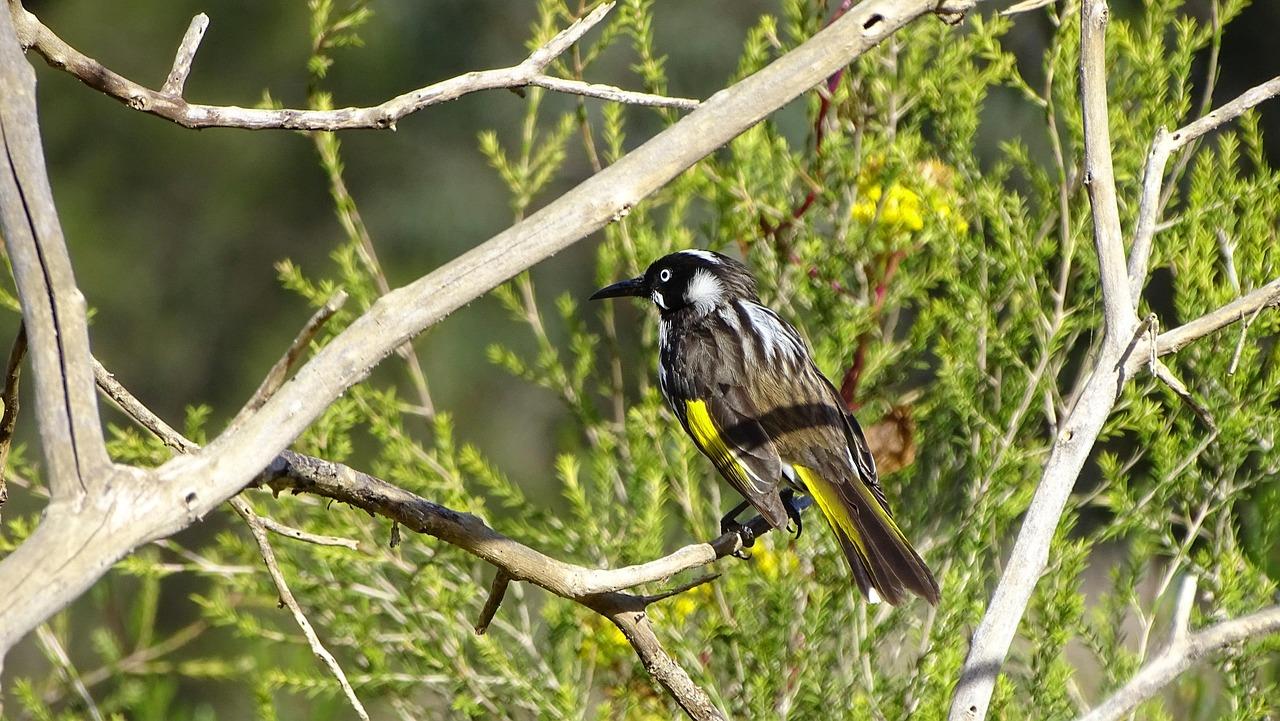
403
Sorry!!
Error! We're sorry, but the page you were
looking for doesn't exist.
Study unveils hidden genetic risks for severely endangered regent honeyeater
(MENAFN) The Australian National University (ANU) announced on Friday that a transnational study had identified genetic threats to the critically endangered regent honeyeater, a songbird native to Australia, despite the species retaining a surprising amount of genetic diversity despite a massive population decline.
Researchers from the ANU and the University of Copenhagen analyzed both century-old museum specimens and modern DNA samples of the iconic songbird, which has seen its population plummet by 99 percent to fewer than 300 individuals. The study revealed that the species has only lost about nine percent of its genetic diversity. According to the ANU, this suggests a "time-lag" where genetic variation decreases more slowly than the population size.
However, this apparent resilience might be misleading. "This delay might be hiding the looming genetic risks," warned Ross Crates from ANU. He added that models predict further loss of genetic diversity, which would increase the danger of inbreeding and reduce the overall genetic health of the remaining population.
The research, published in the journal Proceedings of the Royal Society B, also incorporated environmental modelling to assess changes in the regent honeyeater's habitat. The findings indicate that "urban development, climate change, and habitat loss have significantly reduced the regent honeyeater's breeding and feeding grounds, with conditions expected to worsen in coming decades," according to an ANU statement.
Prof. David Nogues-Bravo of the University of Copenhagen, a co-author of the study, emphasized "the importance of integrating genomic data and species distribution modelling to understand biodiversity decline."
Lead researcher Associate Professor Hernan E. Morales, also from the University of Copenhagen, cautioned that "loss of genetic variation can occur stealthily - and swiftly - after populations reach critically low levels." He further stated that this "Loss of genetic variation can occur stealthily - and swiftly - after populations reach critically low levels," posing a hidden extinction risk to the already struggling species.
Researchers from the ANU and the University of Copenhagen analyzed both century-old museum specimens and modern DNA samples of the iconic songbird, which has seen its population plummet by 99 percent to fewer than 300 individuals. The study revealed that the species has only lost about nine percent of its genetic diversity. According to the ANU, this suggests a "time-lag" where genetic variation decreases more slowly than the population size.
However, this apparent resilience might be misleading. "This delay might be hiding the looming genetic risks," warned Ross Crates from ANU. He added that models predict further loss of genetic diversity, which would increase the danger of inbreeding and reduce the overall genetic health of the remaining population.
The research, published in the journal Proceedings of the Royal Society B, also incorporated environmental modelling to assess changes in the regent honeyeater's habitat. The findings indicate that "urban development, climate change, and habitat loss have significantly reduced the regent honeyeater's breeding and feeding grounds, with conditions expected to worsen in coming decades," according to an ANU statement.
Prof. David Nogues-Bravo of the University of Copenhagen, a co-author of the study, emphasized "the importance of integrating genomic data and species distribution modelling to understand biodiversity decline."
Lead researcher Associate Professor Hernan E. Morales, also from the University of Copenhagen, cautioned that "loss of genetic variation can occur stealthily - and swiftly - after populations reach critically low levels." He further stated that this "Loss of genetic variation can occur stealthily - and swiftly - after populations reach critically low levels," posing a hidden extinction risk to the already struggling species.

Legal Disclaimer:
MENAFN provides the information “as is” without warranty of any kind. We do not accept any responsibility or liability for the accuracy, content, images, videos, licenses, completeness, legality, or reliability of the information contained in this article. If you have any complaints or copyright issues related to this article, kindly contact the provider above.






















Comments
No comment